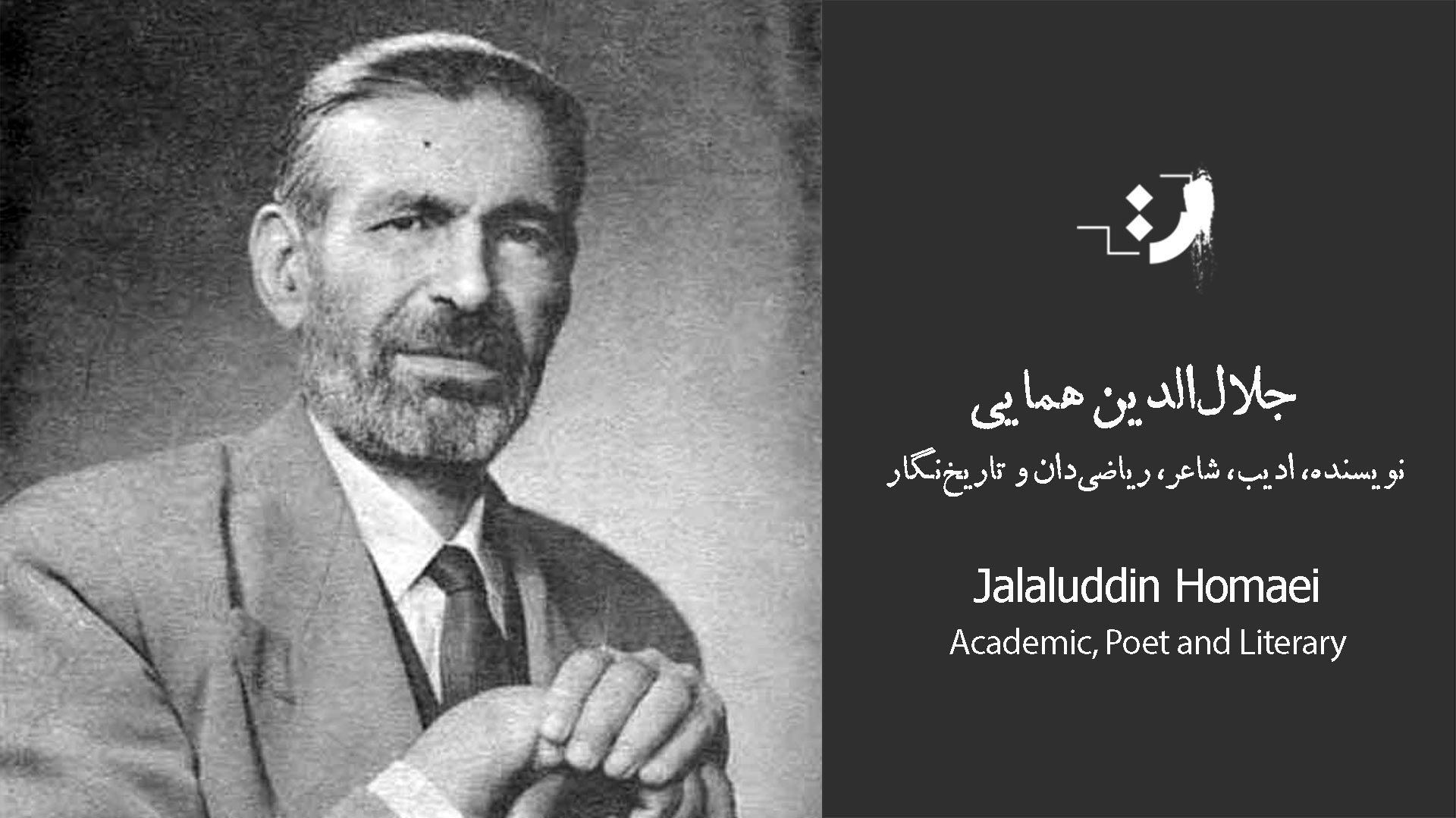Jalaluddin Homaei

Biography
Jalal al-Din Homaei (January 3, 1900 – July 20, 1980) was a distinguished Iranian scholar, poet, literary historian, mathematician, and Islamic philosopher. He was renowned for his profound knowledge of Persian literature, classical sciences, Sufism, and traditional astronomy. He wrote poetry under the pen name Sana and was also known for his editorial contributions to the Dehkhoda Dictionary, one of the most significant linguistic projects in Persian.
Early Life and Education
Homaei was born into a literary and traditional family in the historic neighborhood of Pāghaleh, Isfahan. He was the grandson of the celebrated poet Homāy Shirāzi. His early education was supervised by his parents, and he learned to recite the Qur’an and the poetry of Hafez and Saadi from memory. He later attended the Haqayeq and Qodsieh schools in Isfahan, studying Arabic grammar, rhetoric, and traditional mathematics. He spent two decades studying Islamic jurisprudence and theology at the Nimavard School under prominent scholars, eventually earning the status of a qualified jurist.
Academic Career
After years of rigorous training, Homaei began teaching in Isfahan and later in Tabriz and Tehran. He held teaching positions at Dar al-Fonun and Sharf high schools and later at the University of Tehran, where he taught Islamic jurisprudence in the Faculty of Law for twelve years, followed by literary subjects at the Faculty of Literature. He continued teaching after retirement and influenced generations of scholars. Notable students include Mohammad-Reza Shafiei-Kadkani, Mohammad Moin, Ghodratollah Sarami, Mohammad Khansari, and Jamal Rezaei.
Scholarly Contributions
Homaei was a prolific author and editor, contributing to Persian literary history, Islamic thought, and classical philology. His major works include:
History of Persian Literature (7 volumes)
Ghazāli-nāmeh – A study on the life and thought of Imam al-Ghazali
Khayyami-nāmeh
Molavi-nāmeh (on Rumi) – 2 volumes
Tafsir-e Masnavi – Interpretation of Rumi’s Masnavi
Funūn al-Balāgha wa Sanāye‘-e Adabi – On the science of rhetoric and literary devices
Tasawwuf dar Islam – On Sufism in Islam
Tarikh-e ‘Olum-e Islami – History of Islamic Sciences
Diwan-e Sana – His own poetry, edited posthumously by his daughter Mahdokht Homaei
He also produced critical editions of major classical texts, including:
Masnavi-e Walad-nāmeh
Nasiḥat al-Mulūk by al-Ghazali
Al-Tafhim by al-Biruni
Ethics of Nasir by Nasir al-Din Tusi
Diwan-e Mokhtari, Diwan-e Azraqi, and selections from Saadi, Molavi, and other classical poets
Public Service and Recognition
Homaei served as a member of the Imperial Iranian Society of Philosophy under the honorary presidency of Empress Farah Pahlavi. He was recognized as one of the leading intellectuals and cultural figures of 20th-century Iran. Even in retirement, he remained actively involved in scholarship and teaching.
Legacy
Homaei’s scholarly depth, devotion to traditional Persian and Islamic sciences, and rigorous academic discipline left a lasting impact on Iranian literature and education. His writings and teachings continue to be used in literary and academic curricula across Iran. He passed away in Tehran on July 20, 1980, and is remembered as one of Iran’s most respected scholars of the 20th century.
Would you like a shorter version for use on a website or publication bio?
- Birthday: January 3, 1900
- Death: July 20, 1980
- Birthplace: Isfahan, Isfahan, Iran
Academic, Poet and Literary
